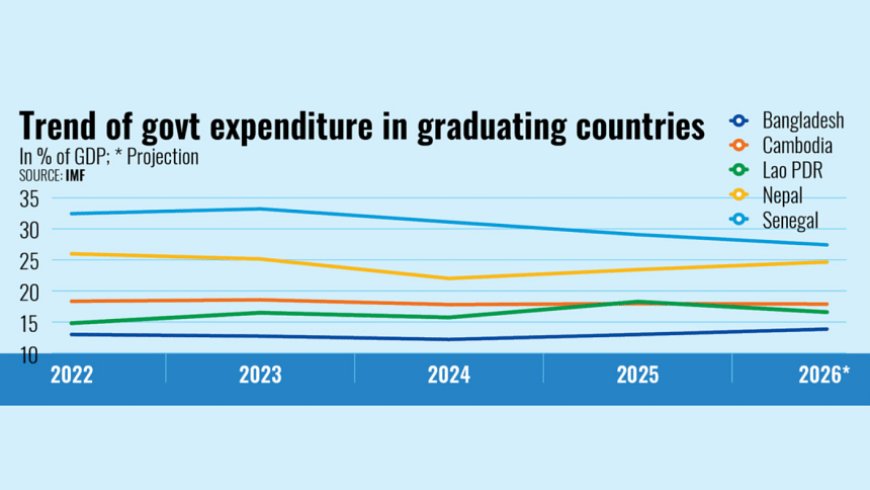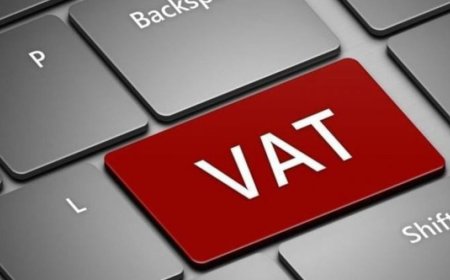Bangladesh’s Government Spending Lowest Among LDC Graduates
Bangladesh Has Lowest Public Spending as Percentage of GDP Among LDC Graduates

Economists warn that Bangladesh’s low public spending—covering both operational costs and development projects—risks weakening the foundation of its transition out of the least developed country (LDC) category and could leave the economy exposed to multiple vulnerabilities. After graduation, Bangladesh will lose preferential trade benefits and face stricter conditions when seeking foreign loans. To cushion these impacts, experts urge the government to boost investment in crucial sectors such as education, healthcare, infrastructure, and social protection, aligning public spending with typical developing economies.
In 2025, Bangladesh’s public expenditure was just 13 percent of GDP, considerably lower than peers like Nepal (23.4 percent), Laos (18.4 percent), and Cambodia (17.9 percent). The IMF forecasts only a slight increase to 14 percent in 2026. Economist Mustafizur Rahman highlights that low revenue collection has constrained government budgets, with Bangladesh’s revenue-to-GDP ratio at a mere 7.3 percent—below several regional neighbors. Rahman notes that increasing spending would require either a higher budget deficit or improved revenue collection, but the government is cautious about expanding deficits due to rising debt servicing costs, which now exceed education expenditures.
With several LDCs, including Bangladesh, slated to graduate by 2026, the country must enhance competitiveness through substantial public investment. Professor Mohammad Lutfor Rahman emphasizes that insufficient funding in health, education, and infrastructure could stall development. Current allocations to health have remained under 1 percent of GDP for two decades, and education spending was only 1.69 percent in 2025, far below the recommended 5 percent for meaningful impact. Furthermore, budget execution is weakening, with implementation rates dropping from 91 percent a decade ago to 84 percent recently, exacerbating inefficiencies and leakages.
To address these challenges, CPD experts call for improved tax collection, reduced leakages, stronger tax administration, and accelerated digital reforms. Enhanced revenues would enable increased investment in human capital and infrastructure, essential for Bangladesh’s economic resilience and international competitiveness as it transitions from LDC status.
What's Your Reaction?






















































































